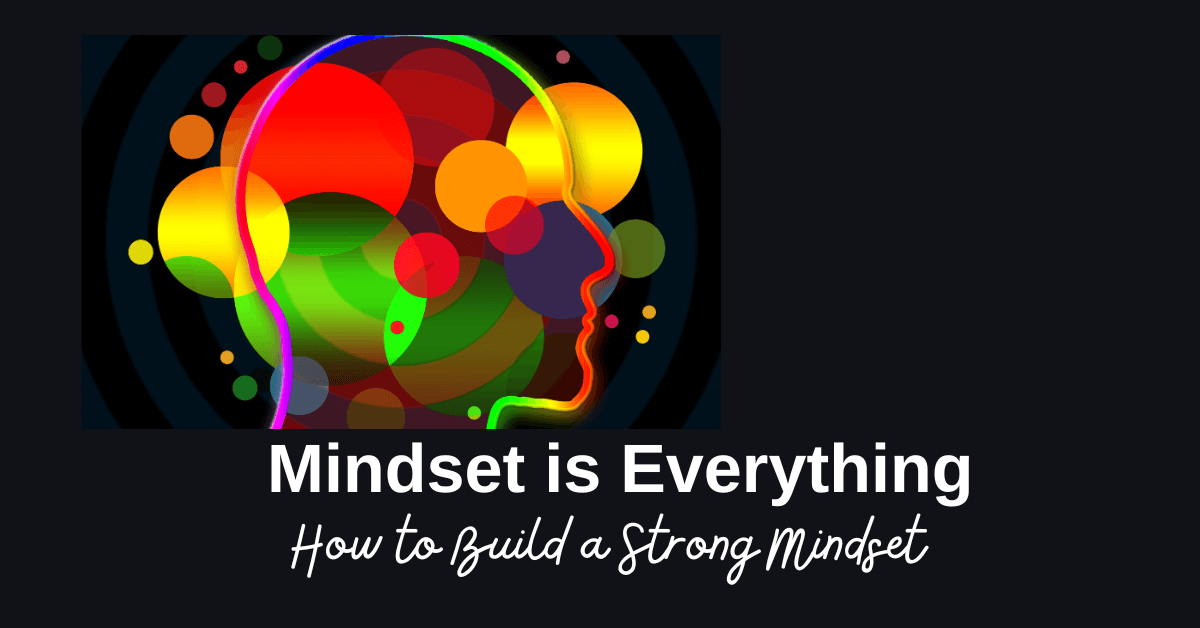Having a strong mindset is essential for achieving success in all areas of life. It’s the cornerstone of personal development and success, an invaluable tool that empowers us to navigate challenges, embrace growth, and achieve our goals. In this blog post, we will explore the importance of building a strong mindset and its various dimensions. This article will equip you with the strategies to build one that leads to a more resilient, fulfilling life.
It is undeniable that our mindset often plays a vital role in shaping our experiences, decisions, and outcomes. Whether we realize it or not, our mindset influences how we perceive the world around us, how we approach challenges, and the direction our lives take.
A strong mindset is not just a buzzword. Instead, it’s a cornerstone of personal development and success. In this blog post, we will delve into the significance of mindset, its various facets, and how to cultivate a robust mental framework that empowers you to overcome obstacles and thrive.
Contents
- Why is Our Mindset Everything?
- Get Over Self-Limiting Beliefs
- Why Do We Need A Strong Mindset?
- Understanding Mindset
- How to Build A Strong Mindset
- Conclusion
Why is Our Mindset Everything?
Before we delve deeper, let’s understand what a strong mindset entails.
In essence, a strong mindset is a mental attitude and perspective that enables you to navigate life’s ups and downs with resilience, positivity, and determination.
It’s about approaching situations with an open and growth-oriented perspective, rather than being confined by self-imposed limitations.
Get Over Self-Limiting Beliefs
I used to believe that I was weak in handling everything about money. Because of this self-limiting belief, I evaded learning essential financial life hacks and paying serious attention to managing my money.
When I finally made the determination to start looking into my financial standing and making plans to achieve my financial goals, I realized that money matters were not as complex as I had presumed. They were, by no means, beyond my learning capability.
Alas, I have wasted so much time and missed so many opportunities!
Why Do We Need A Strong Mindset?
The importance of a strong mindset cannot be overstated. It can facilitate personal growth, success, and overall well-being.
In the face of adversity, people with a strong mindset will embrace it as opportunities for growth. They will focus on finding a solution rather than ruminate on negative thoughts like “Why am I so unlucky,” “Why did this sh*t happen to me,” or “I can’t do this.”
A strong mindset will fuel your determination. No setbacks can hold you back.
Moreover, it will influence how you interact with others, approach new experiences, and make decisions that align with your goals.
Understanding Mindset
What is a mindset? Our mindset is a set of beliefs that influence our interpretation of the world and our self-perception.
Our mindset has an influence on our thoughts, our feelings, and our behaviors. It also influences how we interact with others, approach new experiences, and make decisions that align with our goals.
In this way, our beliefs about ourselves have a significant effect on whether we succeed or fail.
Mindsets can be categorized into different types, with the two most prominent being the fixed mindset and the growth mindset.
A fixed mindset assumes that qualities like intelligence and abilities are inherent traits that cannot be changed. On the other hand, a growth mindset believes that abilities and intelligence can be developed through dedication and effort.
The impact of mindset on personal growth and success is profound. Those with a growth mindset are more likely to embrace challenges, learn from criticism, and ultimately achieve higher levels of success. Their belief in their capacity to learn and improve drives them to put in the necessary work to achieve their goals.
Save for later ⤵️

How to Build A Strong Mindset
#1 Identifying Limiting Beliefs
Limiting beliefs are the barriers that hold us back from realizing our full potential. These beliefs often result from prior experiences, societal influences, or self-questioning.
To overcome limiting beliefs, you need to first recognize them. To identify them, you may try the following methods:
1. Reflect on Your Behavior
Examine your behavior and its underlying triggers to uncover hidden limiting beliefs. Recall instances where you felt hurt and needed to assert yourself. Did you speak up or retreat without expressing your feelings?
Such situations unveil underlying beliefs, like the need to avoid conflict at all costs. This can negatively impact your relationships as it hinders you from speaking your mind even though healthy and direct confrontation can be most beneficial for partners.
2. Put Your Beliefs in Writing
Take a moment to jot down the beliefs that you feel strongly about. You can categorize them under different sections like family, relationships, and health.
The act of writing them down provides a fresh perspective and helps you identify your own limiting beliefs without overthinking.
3. Identify Challenging Situations
List situations that consistently challenge you and those you often avoid. Probe into these scenarios by asking yourself, “What limiting beliefs do I hold?”
By recognizing patterns in your challenges, you gain insight into the specific areas where limiting beliefs are at play.
#2 Overcoming Limiting Beliefs
To overcome your limiting beliefs, question their validity and replace them with empowering beliefs that support your growth and progress.
For instance, consider the belief “I’m not good at public speaking.” Challenge this by reflecting on times when you effectively communicated ideas in a group or received positive feedback on your communication skills.
This examination of contrary evidence can weaken the foundation of the limiting belief.
Shifting from a fixed mindset to a growth mindset requires consistent effort. Old habits and old thinking may creep back in from time to time. This is why it is important to practice self-awareness and mindfulness.
If you find yourself thinking with a fixed mindset again, remind and empower yourself to get back on track. For example, instead of saying “I can’t,” try saying “I can’t do it yet, but I will learn.”
#3 Cultivating a Positive Mindset
Cultivating a positive mindset is key to building mental resilience.
Practice gratitude, and learn to focus on what you have rather than what you lack.
Regular self-reflection allows you to identify negative thought patterns and replace them with positive affirmations.
Surround yourself with positive vibes. You may do it through reading, podcasts, or spending time with uplifting individuals.
#4 Developing Resilience and Persistence
Resilience entails the capacity to rebound from adversity. We can develop this skill over time.
Embrace challenges as learning opportunities. Divide big goals into smaller, achievable tasks so that you do not feel overwhelmed. When setbacks occur, view them as temporary hurdles rather than permanent roadblocks.
Persistence is closely linked to resilience. It’s the determination to keep going, even in the face of difficulties.
When you’re faced with setbacks, tell yourself that they are a natural part of any journey. Remember that success often requires pushing through adversity.
#5 Surrounding Yourself with Supportive People
You don’t have to do it alone!
Instead, surrounding yourself with supportive individuals who share your aspirations and values can greatly enhance your pursuit of a strong mindset.
Look for mentors who have been through where you are now. Their guidance and insights can provide invaluable perspectives and shortcuts to success.
Conclusion
Your mindset is like the thread that weaves everything together in life. It shapes your experiences, your responses to challenges, and ultimately, your outcomes.
By recognizing limiting beliefs, you can begin to shift from a fixed mindset to a growth-oriented one. Cultivating positivity, developing resilience, and seeking supportive relationships are all essential components of building a strong mindset.
As you embark on this journey of mindset transformation, remember that it’s a continuous process. Every small step you take toward adopting a growth mindset will contribute to your personal development and a more fulfilling life.
Are you ready to cultivate the mindset that will empower you to overcome obstacles and seize opportunities? Let’s embark on this journey together. Feel free to share your thoughts and experiences in the comments section below. If you found this post valuable, don’t hesitate to share it with friends and family who might also benefit from developing a stronger mindset. Let’s inspire each other!
